15th July 2020 • Sticky Post
Plant Teachers: 5 Ways Iboga Is Healing Humanity
Iboga is a remarkable substance derived from the roots of a West African shrub. It’s a psychoactive substance that is sacred to followers of the Bwiti spiritual tradition in Gabon and Cameroon, who use iboga in ceremonies for healing, rites of passage, and initiation rituals. It is believed to strengthen family and community structures, resolve pathological problems, and promote radical spiritual growth. But the use of iboga has spread around the world, especially after American Howard Lotsof discovered its utility in curtailing the withdrawal symptoms and cravings he suffered as he attempted to end his addiction to heroin. Iboga has had a fascinating history, but at present, it is proving extremely helpful in curing a wide variety of ailments. Today we’ll be taking a look at how this plant medicine is healing humanity’s ills.
1) Healing Addictions
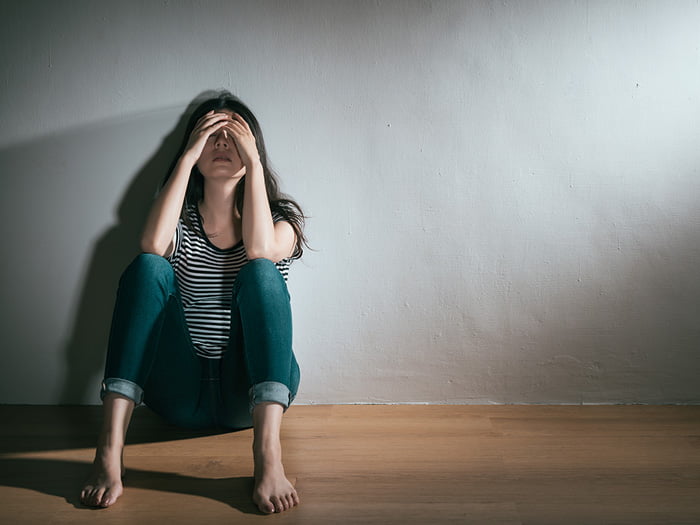
Healing Addictions
This is the best known of iboga’s many uses. The substance interacts with the central nervous system in ways that eliminate many of the debilitating mental and physical side-effects of withdrawal. Studies have proven that iboga is capable of re-setting the brain’s dopamine receptors to a “pre-addicted state”, freeing the addict from intense cravings and acting as an “addiction interrupter.” Iboga also increases neuroplasticity, the brain’s ability to develop and use new neural pathways, which allows those in recovery to develop healthy new habits, patterns of thought, and ways of life.
A Mexican study found that after a single dose of Iboga, two-thirds of the heroin addicts treated went a month without relapsing, and 4 of the study’s 30 participants were still sober one year later. Another study in Brazil experimented with giving iboga treatment and psychotherapy to 75 individuals addicted to cocaine, crack, alcohol, and cannabis. The researchers found that the “results suggest that the use of iboga supervised by a physician and accompanied by psychotherapy can facilitate prolonged periods of abstinence, without the occurrence of fatalities or complications.”
2) Healing PTSD
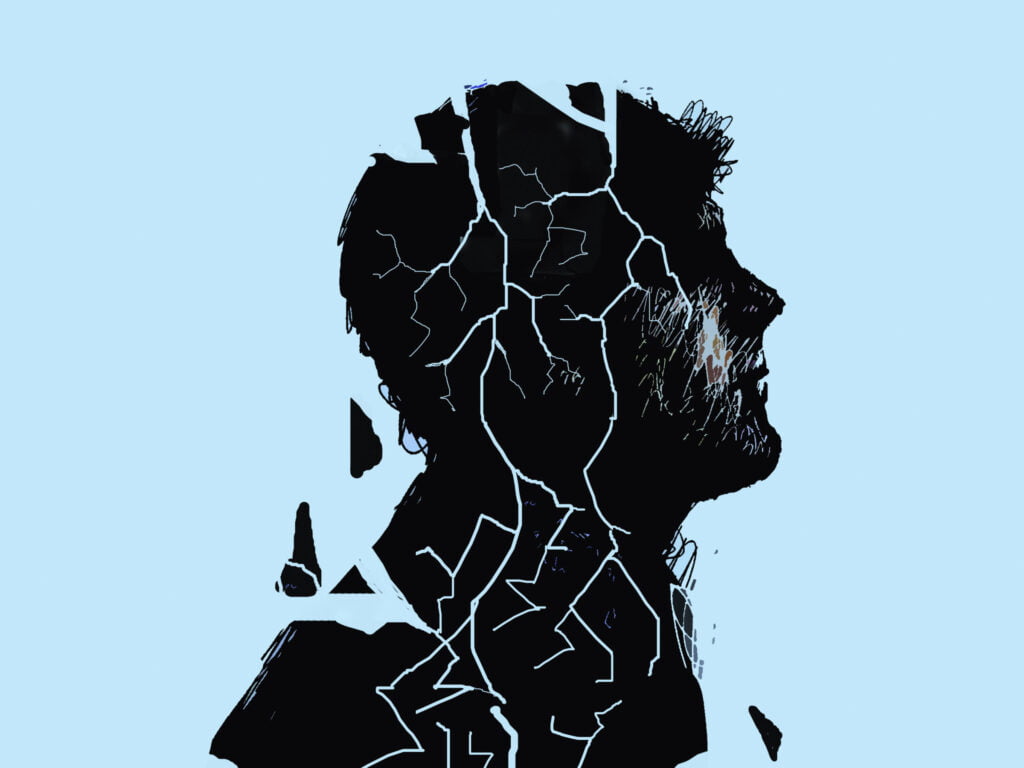
Healing PTSD
When taken in large doses, iboga can induce powerful and vivid visions, creating an oneirogenic state in the user. The types of visions experienced with iboga are often deeply personal, and illuminating, in that they often take a patient back through formative, emotional, and painful moments in their past. For those suffering from PTSD, this can be extremely powerful, as iboga allows the patient to confront the trauma and pain behind the condition. As one researcher puts it, “iboga has a profound ability to guide people through a journey of self-reconciliation.” Viewing a traumatic event as an observer rather than a participant has helped many PTSD sufferers to gain closure, learn to forgive themselves and others, and move on with their lives.
The benefits of increased neuroplasticity are also very helpful for PTSD sufferers. Iboga allows the user to recognize and break negative, self-destructive, and self-reinforcing patterns of thought and behavior that had previously seemed intractable. Dr. C.M. Anderson of Harvard Medical School feels that the “brain state [induced by iboga] may facilitate the consolidation of traumatic memories, the reversal of abnormal hemispheric functions, and the dissolution of habitual motor patterns.”
3) Healing Depression

Healing Depression
Because of its ability to create a fresh perspective on the problems and frustrations of life, and to let the user step outside of themselves, iboga has helped many people suffering from depression. To look at life’s difficulties with fresh eyes and experience a sense of connection with the universe and the people around you is a profoundly beneficial experience for those feeling isolated and trapped in depression. Many depressed people describe their experiences with oneirogenics as an escape from solitary confinement in a mental prison.
Depression is usually defined primarily as a state of disconnection, so the visceral sense of connection to their communities and environments which ibogaine can induce is a powerful counter to depressive disorders. Researchers have hypothesized that iboga’s interactions with the neurotransmitters governing the production and release of dopamine and other neural systems can also be a boon to those struggling with depression.
4) Healing Eating Disorders

Healing Eating Disorders
The latest thinking on eating disorders posits that they fall into the realm of "addiction", with roots in past trauma, which drive the afflicted to gain pleasure and release from pain through their emotional relationships with food. The neural processes of addiction and eating disorders are similar in nature, with pathways, transmitters, and receptors adapting to trap the sufferer in a never-ending pattern of destructive behavior.
Iboga therapy has the benefit of boosting levels of GDNF, a protein that is produced by the brain in early childhood. GDNF aids the production of new neurons and allows for higher levels of neuroplasticity, which is immeasurably helpful with creating and sustaining new habits and patterns of decision making and behavior. This can make a world of difference as anorexics, bulimics, and compulsive eaters strive to fundamentally alter their toxic relationships with food.
5) Healing Anxiety
Anxiety disorders are understood as a problem in your brain’s wiring which causes extreme sensations of fear, panic, and uneasiness in everyday situations. Researchers speculate that they can be caused by genetics, environment, stress, or any combination thereof. But the mental symptoms can also have physical manifestations, like dizziness, difficulty breathing, and heart palpitations. Many sufferers are terrified of leaving their houses or participating in normal social situations. Iboga’s ability to reset abnormalities in brain function has helped many suffering from anxiety disorders, and while there have yet to be many formal studies of the treatment, anecdotal evidence strongly suggests that iboga can help.
A Plant Teacher
Iboga can awaken spirituality and build communities, but it can also help us in a number of other ways. Its profound, life-altering effects on the brain can bring healing to millions looking to ease their suffering. As clinical trials of 18-MC (a non-toxic iboga analog which would not have the psychoactive effects of traditional iboga) proceed, we might be getting closer to unleashing the healing potential of this amazing plant! Let Iboga Tree healing House show you how today!
2nd July 2020 • Sticky Post
Addiction Treatment in the USA: Why Are So Many Addicts Looking Abroad For Treatment Options?
America’s drug problem has gotten exponentially worse in the past two decades. As the opioid crisis rages on, the USA has stubbornly clung to an outmoded and ineffective method of dealing with addiction and the addicted. Unlike many other first-world countries, who have followed Portugal in adopting an approach based on the principles of harm-reduction, America still takes a reactionary “zero-tolerance” approach to drug use. Staggering numbers of US addicts are incarcerated for drug offenses, and while the country is beginning to explore new approaches to dealing with its substance abuse crisis, significant change doesn’t appear to be imminent.
As a result, the country has become a poster-child for the failure of the “war on drugs.” Their archaic drug policy comes under criticism from pundits, social scientists, think tanks, and politicians all over the political spectrum for squandering public funds, destroying lives, and failing to rehabilitate those afflicted by addiction. It’s obvious that change is long overdue, but bureaucratic inertia and a fraught political climate are stalling life-saving reforms. If you’re one of the thousands of US addicts looking for solutions, turning your gaze abroad may seem like the wisest approach.
Why Are American Addicts Looking To Portugal For Answers?

Portugal was in the midst of an epidemic of heroin addiction when they made the dramatic decision to embrace the principles of harm-reduction and decriminalize the consumption of all drugs. As one of the architects behind Portugal’s new approach explains it: “We realized we were squandering resources. It made much more sense for us to treat drug addicts as patients who needed help, not as criminals.” By removing the threats of prosecution and incarceration, Portugal has reduced the stigma surrounding addiction, and the number of addicts receiving treatment has increased by 60% since 1998. The results the country has achieved simply by treating addicts with dignity and viewing addiction as a health issue has caused countries such as Canada, France, Switzerland, and Germany to embrace harm-reduction. Portugal’s clear-headed, compassionate approach to treating addiction makes it an ideal destination for those attempting to overcome substance-abuse problems.
America offers some publicly funded drug treatment options, and there are privately run residential treatment facilities. These centers have the benefit of being close to home, but for Americans without comprehensive health insurance, the cost of effective treatment in a comfortable setting can be staggering. Luxury private facilities have rates rising as high as $100,000 per month! And if you’re looking for a publicly funded facility, you need to be prepared for wait times of approximately 18 months! The shortage of treatment beds and affordable facilities has pushed many addicts to the brink of despair.
In theory, seeking treatment in these centers will not put you at risk of increased attention from the police or the stigma of being an addict in a society that views drug use very harshly, but if you’re living in a small community, word might still spread. If you’re looking to be treated with dignity and respect, experience compassionate treatment, and maintain your privacy, going abroad might be your best option. Drug addiction is still viewed harshly in America, with studies finding that addiction carries more stigma than mental illness. In many communities, the addicted are still seen as criminals who have succumbed to a “moral failing” rather than sick people in need of medical treatment. If you’d prefer to be treated as a person, rather than a junkie, as you begin your recovery journey, you might want to consider seeking treatment in Portugal!
Why look at Addiction Treatment Options Abroad?
1) Environment

Leaving an environment full of familiar stressors and temptations can have a beneficial effect in treatment. And traveling abroad can bring a profound sense of relief and relaxation. Portugal is a picturesque country with a lovely Mediterranean climate. It’s dotted with quaint villages, ancient ruins, majestic castles, and miles of beautiful coastline. And there are few regions better suited to recovering your health than Portugal’s sun-drenched Alentejo region. A land of rolling hills and vast plains, the Alentejo offers visitors the opportunity to recover their health and connections to the natural world by riding horses, watching birds, stargazing, hiking and cycling. Many visitors are especially appreciative of the temperate climate, peaceful lifestyle, and delicious regional fare. All while enjoying a rehab facility that rivals a luxurious resort or hotel for a fraction of the cost of treatment back home. You’ll disconnect from a toxic environment and share amazing new experiences with people from all around the world!
2) Privacy

While increasing numbers of people are coming to the understanding that addiction is a medical issue, there is still a significant social and professional stigma that comes with seeking treatment for substance abuse. If you head to Portugal, it’s easy to tell friends, family members, and colleagues that you’re off on a much-needed vacation and avoid awkward conversations and prying questions. There’s also no risk that someone will spot you emerging from a clinic or support group meeting and start whispering.
3) Promising Treatments Unavailable At Home

We’ve written a lot about the undeniable power of ayahuasca and iboga to combat the addictive properties of opioids and other drugs and to open the addicted mind to the idea of a positive transformation into sobriety. Because Portugal has decriminalized all drugs, promising treatments that cannot be obtained in a safe medical setting in America can be accessed here with the supervision of health-care professionals. If you think a treatment that uses a psychoactive substance is your best option, we’d strongly recommend getting away from the United States, where strong anti-drug laws put you at risk of prosecution and incarceration. Iboga has been considered a “Class 1” drug in the United States for decades. Although the government has occasionally expressed interest in exploring medical use, and in spite of the tremendous power the substance has shown to combat opioid addiction, its legal status is unlikely to change at any time in the near future.
In spite of our belief in iboga’s remarkable ability to interrupt addiction, we would strongly advocate against using it in regions where draconian laws force its use underground, creating potentially fatal health risks.
4) Easy Intake

When you’ve reached rock bottom, a treatment center that can quickly start the process of detox and recovery can be a life-saver. The prospect of waiting eighteen-months for the in-patient treatment you need can be a heart-breaking, motivation-sapping roadblock. America’s drug programs are underfunded, one of the main reasons why the majority of US addicts are pushed into outpatient treatment programs. Treatment centers abroad can immediately start the intake process, allowing you to strike back at your addiction when you’re feeling hopeful and motivated. This can make all the difference in the world!
Iboga Tree Healing House

At Iboga Tree Healing House, we have a unique ability to accommodate clients from around the world with our welcoming, open-minded, and international staff.. You’d be hard-pressed to find a treatment center more committed to the safety of their clients than Iboga Tree Healing House. We’re also deeply committed to maintaining a supportive and non-judgmental environment for facilitating recovery and personal growth.
In addition to offering iboga treatment, we also provide a wide array of holistic treatments, including breathwork, kundalini yoga, equine-assisted therapy, kambo, and more. All of these practices are extremely beneficial for re-energizing both body and spirit to pursue recovery. In combination with our ten-hectares of outdoor space, large terraces, and outdoor swimming pool, we let nature remind our clients to be grateful and receptive to new horizons and second chances. We have many testimonials from people around the globe who’ve benefited immeasurably from experiencing our addiction treatment in beautiful, sunny Portugal. If you’d like to experience treatment abroad, don’t hesitate to get in touch!
24th June 2020
Addiction Treatment Trends: 3 Alternatives Driving Change
Addiction treatment trends are constantly evolving. As we deepen our understanding of neurological processes in general, and the addicted mind in particular, we discover more effective ways of dealing with addiction and helping the addicted in their recovery journey. From the 12 Step Program to the Johnson Intervention to Methadone and Suboxone, new treatments have always grown out of medical and scientific innovations. And today there are treatments that show incredible promise ready to burst into the mainstream. As neuroscientists and neuropsychologists unearth new data, the way we understand addiction is changing, and the treatments which are leaping to the forefront are those that help to heal the minds of addicts.
Addiction treatment trends are constantly evolving. As we deepen our understanding of neurological processes in general, and the addicted mind in particular, we discover more effective ways of dealing with addiction and helping the addicted in their recovery journey. From the 12 Step Program to the Johnson Intervention to Methadone and Suboxone, new treatments have always grown out of medical and scientific innovations. And today there are treatments that show incredible promise ready to burst into the mainstream. As neuroscientists and neuropsychologists unearth new data, the way we understand addiction is changing, and the treatments which are leaping to the forefront are those that help to heal the minds of addicts.
NAD+
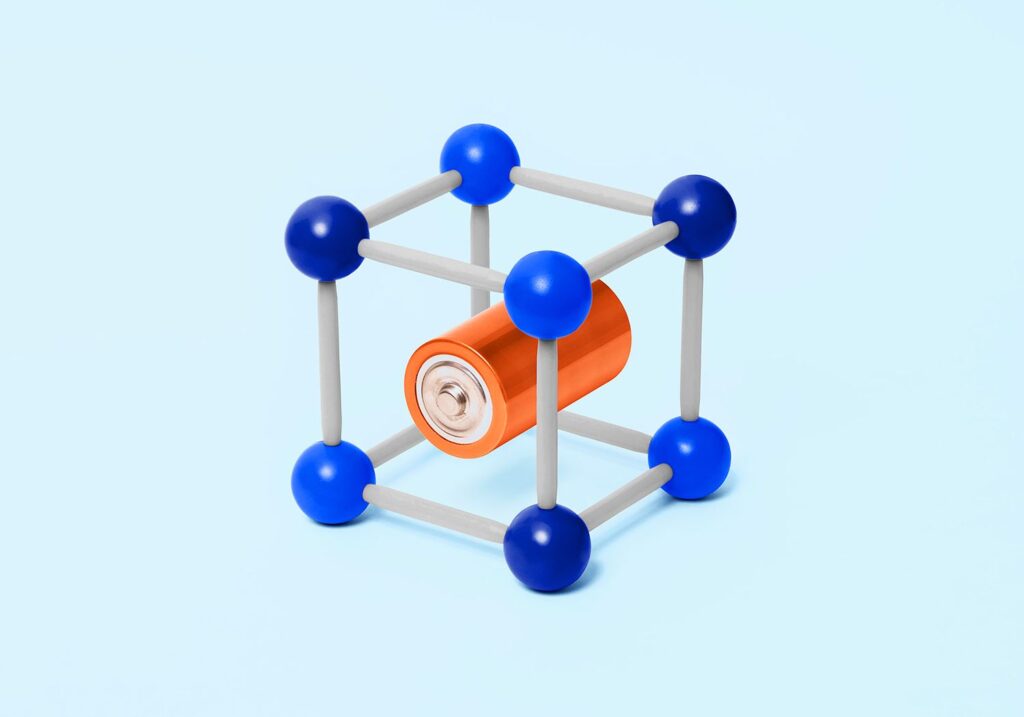
Addiction Treatment Trends: 3 Alternatives driving change
NAD+ is a naturally occurring co-enzyme of niacin which has shown immense promise as a treatment for substance abuse disorders, as well as many of the symptoms of aging. Studies have shown that addicts generally have very low levels of NAD+ in their systems, and many of the physical and mental disorders that frequently co-occur with addiction have been proven to deplete the body’s store of this essential nutrient. Proponents of the treatment tout its ability to restore the balance of neurotransmitters, which is disrupted by the process of withdrawal, decreasing withdrawal symptoms and cravings.
NAD+ was first used as a treatment for alcoholism in South Africa in the 1960s, and it came to the notice of Bill Wilson, one of the co-founders of Alcoholics Anonymous, who experimented with taking 3000 mg of niacin daily, and found it immensely helpful. He even wrote a pamphlet promoting it as a cure for alcoholism. In spite of this, its use never became widespread, and the first NAD+ treatment center in the US, the Springfield Wellness Center, wasn’t opened until 2001. The facility was opened by Psychotherapist Paula Mestayer and her Psychiatrist husband Richard. Since opening, they’ve successfully treated thousands of patients. Dr. Mestayer feels that the treatment is most successful when used as a “maintenance”, and finds that many clients come back for booster doses. She also notes that NAD+ treatment is particularly effective when dealing with alcoholism and opiate addiction.
NAD+ works in theory because it creates “neuroplasticity”, the brain’s ability to create new neural pathways and heal itself. Years of addiction condition the brain to release dopamine when given substances of abuse, and to respond to stress, pain, and anxiety by treating them with drugs and alcohol. NAD+ can help to change the structure of the brain, offering addicts the chance to gain pleasure from activities other than substance abuse and to find new ways to cope with the stresses of life.
For a more in-depth article on NAD+, click here.
Iboga

Iboga
If you’ve kept up with our blog, you already know about Iboga’s uncanny ability to treat withdrawal symptoms and substance cravings, as well as its ability to reset dopamine receptors in the brain to a pre-addicted state. If you haven’t, we’d recommend checking out this post on Iboga’s efficacy for treating opioid addiction. In addition to its treatment benefits, the substance induces an egoless, reflective state that can also help addicts confront and overcome past trauma and certain mental health issues.
Furthermore, Iboga is not habit-forming and is unlikely to be abused. There is no evidence that it is physiologically or psychologically addictive. As one user described the experience: “I wouldn’t recommend it to somebody who is trying to have fun. If you want your body to explode into 1000 pieces and then rebuild itself, then yeah. But don’t expect it to be pleasant.” While there have been no systematic, controlled clinical trials in the US or Europe (mainly because the substance is classified as a Schedule I drug), there are thousands of testimonials from people who credit the substance with saving their lives and allowing for them to recover from the nightmare of addiction.
Iboga use is not without risk. It can be deadly for those with pre-existing cardiac conditions, and in absolutely massive doses it may induce seizures. But even though it is often self-administered, or used without medical supervision in unsafe settings due to its murky legal status, it is still safer than methadone, causing 1 death in every 427 treatment episodes, compared to a 1:364 mortality rate for methadone. Click this link for more on the risks and safety precautions that are too often ignored by irresponsible treatment providers. And if you’d like to know more about iboga treatment, we’re happy to answer your questions.
Getting Holistic
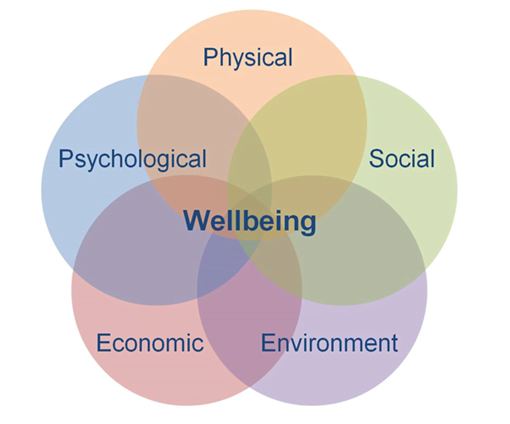
Getting Holistic
Addiction recovery, like cancer recovery, comes with a chance of relapse. And while treatments that deal with cravings and withdrawals are a wonderful tool you can use to heal yourself, dealing with the underlying causes of addiction, whether physical pain, mental trauma, depression, anxiety, or PTSD, is the only way to truly heal yourself. This is why the American Addiction Centers’ resource guide lists a host of techniques that can help lead you into a healthy new life, including equine therapy, biofeedback, yoga, and mindfulness training. As they write, holistic therapies “offer a more comprehensive approach” that heals on “mental, emotional, physical, and spiritual” levels, “increasing the chances for success and reduc[ing] the risk of relapse.”
At Iboga Tree Healing House, we are firmly convinced that holistic treatments are immensely valuable in the weeks, months, and years following inpatient treatment. Addiction batters the body as well as the mind, and in recovery, you have a wonderful opportunity to restore yourself to health and happiness. Kundalini yoga has a host of benefits for those in recovery, connecting body and mind, building strength, discipline, and will-power, and promoting spirituality. Mindfulness practice has been proven to have a plethora of benefits for your mental health and will help you rebuild connections with others that have become frayed or broken while you were addicted. Many other holistic treatments can help you on your journey through recovery, whether it’s art therapy for past trauma or nutrition therapy for rebuilding your body’s strength. At Iboga Tree Healing House we are committed to offering a wide range of holistic therapies to our clients!
Moving Forward Together
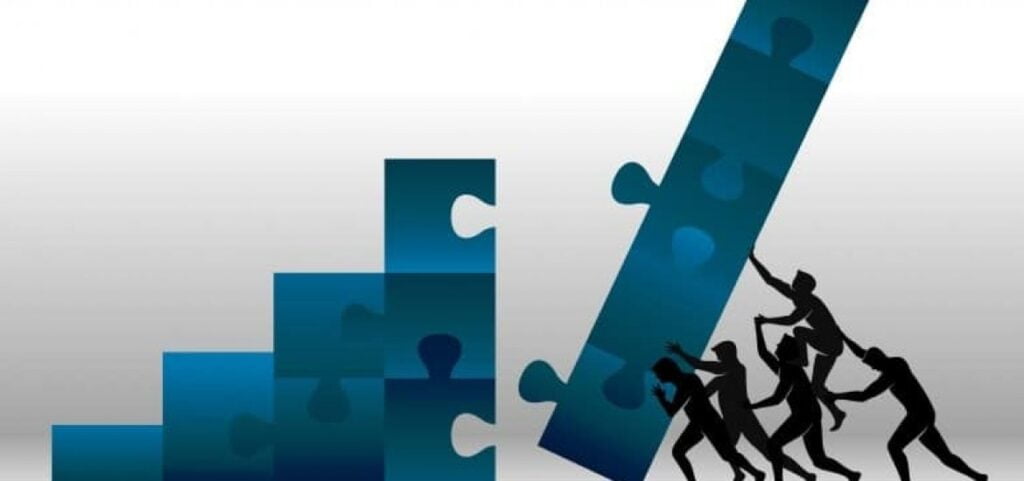
Moving Forward Together
As the opioid epidemic rages on, we need to continue to refine and develop treatments that work in order to win the battle against addiction. Traditional treatment modalities have worked for millions, but they’ve also allowed millions of others to slip through the cracks. We have discovered promising new ways to treat this devastating and debilitating disease, and we should use them to free those trapped in addiction.
17th June 2020
Post-Treatment Support: 3 Reasons it's Crucial
When you leave a treatment facility, you will almost certainly feel triumphant. You’ve conquered detox and withdrawals. You’ve faced down some demons and persevered. You’re ready for a wonderful new challenge, ready to find fulfillment in all the areas of your personal and professional life that you’ve neglected for too long. But it is a huge mistake to assume that you can conquer addiction in isolation. Almost everyone who succeeds in recovery needs support as they navigate life after addiction, and here’s why:
1) Life's Stressors

Post-Treatment Support: 3 Reasons it's Crucial
Your parents and teachers probably told you this long ago, and they told you for a reason. Addiction simplifies all of life’s problems, allowing the addict to substitute the worries and cares that most people deal with into one problem: how do I get more of the substance I need to function? After addiction, you are exchanging that one simple problem for a host of other concerns.
And life can be especially hard when you’re facing challenges that you have avoided for years. Most addicts emerge from treatment to find that their finances are a mess, their health has deteriorated, their professional prospects have changed for the worse, and their personal relationships are in dire need of attention and repair. It is easy to feel overwhelmed, and your mind has been conditioned to turn to a substance when faced with difficult situations and emotions.
This is why a sponsor, a peer-support group, or a counselor is fundamental to the recovery process. You’ll need encouragement and advice to get your finances in order, to make amends with the people you’ve wronged, to re-connect and repair relationships with loved ones, and to build healthy habits for your sober life. Someone experienced in the logistics of rebuilding lives destroyed by addiction can guide you through a process which will appear hopeless and impossibly daunting at first. You’ll need to learn how to live a responsible and productive life, and it’s almost impossible to learn without a teacher.
2) All It Takes is One Slip

All It Takes is One Slip
We tend to think differently of relapse when dealing with addiction than we do with “medical” diseases. But as with cancer in remission, the specter of relapse will always be looming behind you. Addicts suffer relapses at rates similar to those for “chronic medical illnesses” according to the National Institute for Health. While relapse doesn’t necessarily mean that treatment has failed, many addicts immediately return to their previous, self-destructive patterns of substance use and behaviour.
But relapse doesn’t happen in a single, disastrous moment. Addictions experts have broken relapse down into a series of stages. It begins with “emotional relapse”, where denial, isolating, bottling-up of emotions, and poor self-care put those in recovery in vulnerable positions. This is followed by “mental relapse”, which typically includes minimizing the damage caused by substance misuse, glamourizing past substance use, lying, bargaining with yourself, and creating scenarios where substance use would be acceptable. The final stage is “physical relapse”, where an addict begins using once again.
Because professionals and peers with experience of addiction are aware of this cycle and have dealt with these situations before, they are an absolutely invaluable resource for preventing relapse. A sponsor, counselor, or close friend who has been through these battles will recognize the signs of relapse in the stages leading to a physical relapse, and prod you back onto a healthy path. Having someone you trust and respect point out negative patterns in thought or behaviour can often be enough to keep you on the road to recovery. An NCBI review found that participation in peer-support programs led to higher rates of abstinence, greater satisfaction with treatment, and significant reductions in relapse rate.
3) People Need People
Over 2000 years ago, the Greek philosopher Aristotle wrote that “Man is, by nature, a social animal.” He argued that humans derive happiness and meaning from building connections with others, and that anyone who didn’t need others was “either a beast or a God”, something more or less than truly human. Modern philosophers have explored and challenged his ideas, but we think most would agree with his assertion that we need to interact with and care deeply about others in order to live meaningful lives.
Johann Hari, a journalist and thinker who has explored addiction in-depth, would certainly agree with the Greek. After studying the affliction, he concluded that addiction was based not on brain chemistry, but on an inability to connect with others. The Canadian psychologist Dr. Bruce Alexander conducted the seminal “Rat Park” study, an experiment which influenced Hari’s thinking. He offered morphine-laced water to rats that were isolated, and to others placed in environments with companions, toys, exercise equipment, and sexual partners. Alexander found that the isolated rats quickly became dependent on opiates, while the happy, socially fulfilled rats did not.
Why is this important for you? Post treatment, you’ll be particularly vulnerable to feelings of isolation. You’ll want to avoid many of your former friends and associates in order to stay sober, and it will take time to re-build meaningful connections with family and loved ones. Peer-support groups are a tremendous way to manufacture a sense of connection and belonging as you begin to build a sober life. Most groups are supportive and welcoming, and the encouragement, advice, and guidance they can offer will be invaluable.
At Iboga Tree Healing House, we recommend peer-support fellowships to anyone who’ll listen. Even if you’re put off by the 12 Step model, there are promising alternatives out there, such as Smart Recovery, which might work for you. We’ve even launched our own peer-support network tailored for those who’ve found sobriety through iboga therapy, which allows individuals around the world to come together for weekly video conferences. Recovery isn’t easy, and it’s even harder if you try to do it alone!
6th May 2020 • Sticky Post
Addiction Treatment During COVID-19: Is it Safe?
We are all currently struggling through the Covid-19 crisis together, but for those dealing with addiction, times are even harder. Those suffering from addiction and substance abuse are at greater risk to outside stressors, their health is likely already precarious, and in this time of profound uncertainty, the pressure on both individuals and the healthcare sector to provide care is at an all-time high. But addiction doesn’t stop in times like these, and the need for addiction treatment won’t lessen either. If you feel that the time has come to end your addiction, there are ways to get the help the addiction treatment you need. Let’s take a look at the ways Iboga Tree Healing House can help you find your path to health in the midst of the current "coronavirus" pandemic.
Inpatient Treatment Is Available!
At Iboga Tree Healing House, we are committed to keeping our doors open and refusing to give in to addiction. We have revised our intake protocols to keep our staff and clients safe, including respect for all national travel restrictions, a two week period of quarantine in Portugal prior to treatment, and 3 separate tests for the virus. We are committed to offering a refund to any potential client who tests positive for the virus, minus a 10% registration deposit.
You Are Safe With Us.

While many are understandably reluctant to leave their homes, let alone travel abroad for medical treatment, our staff has created a series of guidelines in concurrence with the Portuguese Directorate-General of Health in order to ensure your safety while accessing the most effective addiction treatment on the planet. We are also actively following and ready to implements any new guidelines or regulations issued by the CDC, the WHO, or any relevant national, state, or local regulatory bodies. A commitment to doing everything humanly possible to protect and improve the health of our clients is a foundational value at Iboga Tree Healing House, and we are focusing our efforts on doing all we can to provide safe treatment while the crisis rages.
We have always kept our facilities clean, and we have established new standards for both cleaning and sterilization to ensure that every surface, from doorknobs to computer keyboards, are disinfected throughout the day. Our entire staff has undergone medical training in order to deal with adverse events, monitor the health of our clients, and operate the necessary equipment. That training is now being put to use to screen for risks among incoming clients, and constantly monitor the health of those undergoing treatment. We have also temporarily suspended on-campus visits and events and shifted workers who aren’t absolutely needed for client care to work from home.
We will be vigilant in looking out for the symptoms of coronavirus: runny nose, dry cough, pressure in the chest, sore throat, fever, confusion, excessive blushing in the face and neck, difficulty breathing, and shortness of breath. If a client or staff member exhibits a fever of 100.4 or above, we will immediately isolate them and contact the local authorities to facilitate testing and treatment if necessary. Our emergency plans and procedures have already succeeded when tested before, and we stand ready to provide the safest, most effective treatment program possible during these uncertain times.
Online Is A Viable Option.

We understand that in spite of the precautions we are taking, many prospective clients will still struggle with the decision to seek treatment abroad. Therefore, we are ramping up our efforts to offer counseling and outpatient services, as well as pre- and after-care, online. Our Iboga Recovery Movement (IRM) meetings, which offer guidance and peer-support, have been increased to twice-weekly, and we will offer virtual family support meetings for all of our clients. All of our staff is ready to commit their time to helping you through the recovery process, whether you can come visit us or not. If you need to speak with us via phone, email, Zoom, Skype, or any other digital platform, let us know and we’ll do everything we can to be there with you.
Implications Of Covid-19 For Addiction And Mental Health
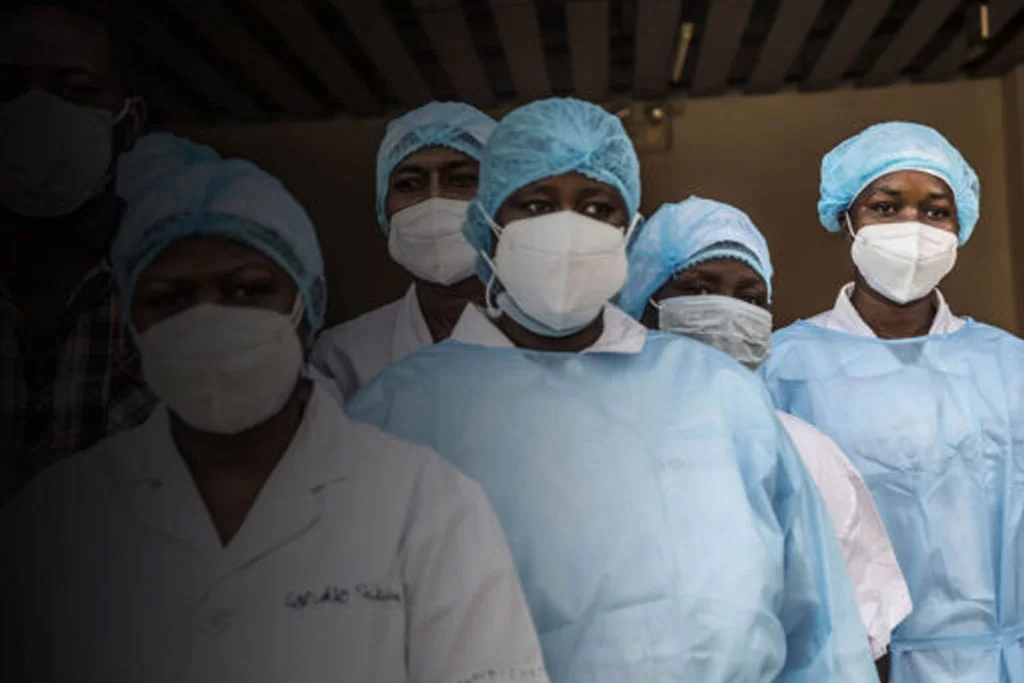
For those dealing with substance abuse issues, mental health issues, or dual diagnosis, this crisis is especially scary. For those dealing with addiction to opioids, the slowed breathing and lack of oxygen to the brain caused by these substances substantially increases the risk of complications to any respiratory ailment. Methamphetamine abuse has also been highlighted as a risk factor by the CDC because it often leads to pulmonary hypertension and pulmonary damage as it constricts blood vessels in the lungs. Furthermore, those addicted to any substance are far more likely than the general population to have compromised immune systems, lack of access to the health-care system, and to put themselves into environments where close contact with others puts them at a higher risk for infection. While pursuing treatment at a time like this does come with some risks, continuing to abuse substances is probably not a healthier alternative.
Lockdown, social distancing, self-isolating, loss of livelihood, and the constant assault of anxiety-inducing news reports are taking their toll on those previously in good mental health. Forbes magazine has reported that half of all Americans are reporting that the crisis has had a negative impact on their mental health. For those with pre-existing conditions such as depression and bipolar disorder, these negative effects can be even more severe, as routines and behaviors that maintain good mental-health become impossible. As CBS News has noted, significant global events and disasters can trigger very severe symptoms in the afflicted. Even during this pandemic, no one should be afraid to get the help they need.
We’re Here If You Need Us
Addiction, mental illness, and Covid-19 are all severe, potentially fatal, threats to your health. All of them need to be taken extremely seriously, and we don’t recommend taking action until you have explored the consequences and risks of those actions thoroughly. But if you are convinced that now is the time to end your addiction or deal with mental health issues, we are committed to providing you with the treatment you need. Whether you are looking for answers to your questions, online counselling, or in-patient treatment, we at Iboga Tree Healing House are committed to being here to serve you throughout this unprecedented global crisis. Don’t hesitate to get in touch with us today.
1st May 2020
COVID-19 and Addiction: Seeking Workable Solutions
The current model of addiction treatment works for some users who are desperate to change their lives. It also fails many of those most in need, for a variety of reasons. Whether the problems are a stubborn insistence on criminalizing drug use and prosecuting the unwell, profit-motivated providers promising the moon and delivering underwhelming treatments, or unscrupulous treatment centers exploiting their clients and playing a shell game with insurance companies, the rehab industry is plagued by a host of problems in countries around the globe. As the COVID-19 pandemic pushes health-care systems to the breaking point and exposes the addicted to horrifying risks, the time has finally come for societies to examine their current drug treatment models, and find solutions that work efficiently for those suffering from the affliction, and for health care systems groaning under the weight of the virus.
Reducing Harm
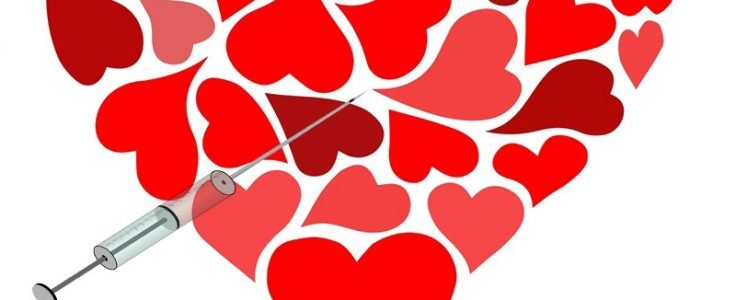
Reducing Harm
We are extremely proud to operate in Portugal, a nation with the wisdom and compassion to end the fruitless “war on drugs” and adopt a clear-eyed and compassionate approach to drug use. Portugal’s decision to wholeheartedly embrace the principles of harm reduction, decriminalize all personal drug use, and treat addicts as human beings suffering from a severe health disorder rather than dangerous criminals was certainly the right one, a fact that is continually reinforced as nations around the globe follow suit.
Harm Reduction has been proven not only to benefit addicts’ physical and mental health, and reduce the dangerous stigma surrounding addiction, but it also can save the public sector vast sums of money. By providing services such as needle exchanges and safe injection sites, governments can dramatically reduce the spread of disease and incidences of overdose, drastically reducing the financial burden which opioid and opiate use place on an overtaxed health-care sector. A refusal to embrace policies that save both taxpayer money and the lives of society’s most vulnerable members is both financially misguided and morally indefensible.
A Modern Understanding Of "Addiction"
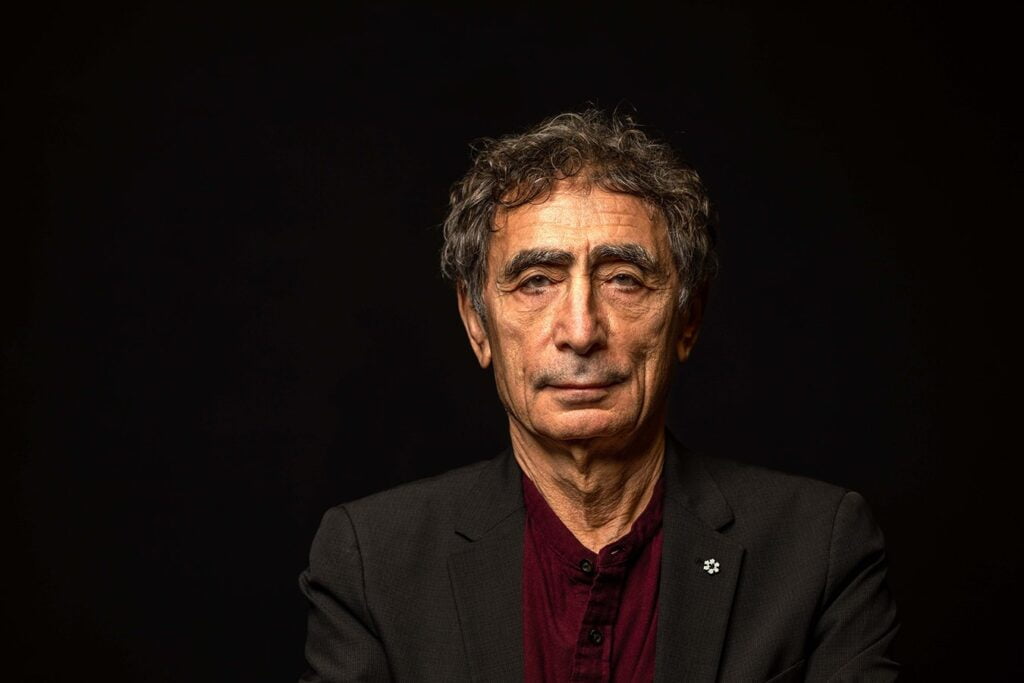
The traditional narrative of addiction, where a weak person becomes enslaved by a “demon drug” has been eroded throughout the years as we gain more understanding of the psychological and neurological changes that occur within the addicted mind. The outdated notion of a thrill-seeking young person experimenting with a gateway drug and almost instantly getting hooked on heroin seems laughable now, but even as we've come to learn how deeply flawed this idea is, we are clinging to treatment modalities based on its cartoonishly simplified view of the affliction.
Thinkers like Gabor Mate, Johann Hari, and Maia Szalavitz have assembled vast quantities of research on what addiction is, and what it is not. They argue for a more complex method of treatment than traditional models such as the 12 Steps, or “cold turkey” would advocate, and for more research into treatments that are being neglected by the mainstream. The mechanisms of addiction are shaped by trauma and rooted in neurological processes that must be understood to be corrected. While there may be addicts out there who can (and do) turn their lives around through sheer force of will, the fact that a UN Report from 2019 estimated that the global total of deaths caused by drug use in 2017 was 585,000 is proof enough that much more needs to be done.
One of the most substantial hurdles that needs to be overcome is a prejudicial attitude towards alternative treatments and psychoactive substances that have shown immense promise in treating addiction. Iboga has shown a remarkable capacity for rewiring the addicted brain, correcting chemical and hormonal changes that create destructive patterns of behavior, and for allowing addicts to open their minds to the changes in attitude and lifestyle that they desperately need to make. Yet governments have been dragging their feet over pursuing the clinical trials that would clear it for therapeutic use in most countries.
Similar successes can be claimed by other medicinal plants that have been used since ancient times, including ayahuasca, a psychoactive plant from South America that D. Gabor Mate describes as “an antidote to Western psychological distress and alienation.” Psilocybin has also shown promise in treating addiction to nicotine and alcohol, as well as many of the underlying psychological issues that can lead to addiction. While research on the medicinal properties of these plants is slowly moving forward, any delays in the process will put the lives of habitual drug users at risk.
People Before Profits

The economic ramifications of COVID-19 are going to be absolutely massive, and restrictions on domestic and international travel are a massive hurdle for many treatment centers. While this will have a slew of negative consequences, it may also force many disreputable, fly-by-night providers into a new line of work. With horror stories emerging of American “piss farms” that exist solely to collect hefty payments from insurers, or “tough love” approaches taken around the world, where addicts in desperate need of treatment are belittled, mistreated, and forced to perform menial work, one consequence of COVID-19 might be a new focus on health which refuses to accept regressive, rapacious, and damaging methods of treatment. We at Iboga Tree Healing House have dedicated our lives to the cause of freeing individuals from addiction, and nothing offends us more deeply than treatment providers whose contempt for their patients manifests itself in substandard care.
We know firsthand how horrifying the effects of addiction can be. We also know that effective treatments, such as iboga, are out there, ready to be put to use to restore individuals to health, happiness, and their loved ones. We will be doing everything we can to push the cause of sane, safe, and compassionate treatment forward as COVID-19 rages around the globe, in the hopes that when the virus lets up, policy-makers are ready to prioritize the health-care needs of society’s most vulnerable citizens. If you’re interested in starting your fight against addiction today, get in touch with us!
7th April 2020 • Sticky Post
Codependency, and how it impacts your life
“A codependent person is one who has let another person’s behaviour affect him or her, and who is obsessed with controlling that person’s behaviour.” -Melody Beattie, author of ‘Codependent No More.’
Defining Co-dependency
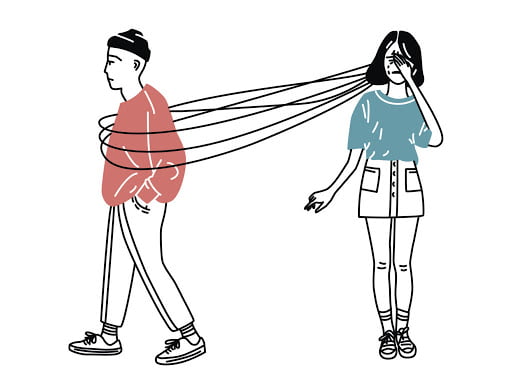
Most psychologists view codependency as a product of two dysfunctional personalities coming together to an extent where boundaries between the personalities cease to exist. Psychologists call this process “enmeshment.” We all know deeply unhappy couples who have stayed together in spite of the misery they create. And while there are many reasons for couples to stick together in dire situations (children, finances, inertia, loyalty, etc.), the main reason people stay in these relationships is the belief of one partner (or sometimes both) that they deserve to be mistreated.
Traditionally, codependent relationships have been defined by control. Studies from the late 1980s and early 1990s concluded that codependent individuals based their lives, self-esteem and sense of well-being on the behaviour of an unhealthy family member. They concluded that a pattern was established with the functional partner nurturing the afflicted partner, and creating a pleasurable and self-reinforcing cycle which rewarded misbehaviour. As the psychologist Reevah Simon has noted, “wherever there is ongoing conflict, there is underlying agreement.” In other words, the functional partner consents to the pattern of codependency, and takes a sense of pleasure, satisfaction, or purpose from it.
Codependency in the Family

The classic example of a codependent relationship is the enabling wife of an alcoholic, but over time the definition has expanded to include partners of individuals with any addiction or chemical dependency, partners of some individuals afflicted by chronic physical or mental illnesses, and any member of a dysfunctional family with symptoms of the disorder.
If you grew up in a dysfunctional family, you are at a far greater risk of developing codependent relationships. According to Mental Health America, members of dysfunctional families are used to denying the existence of problems. They don’t talk about them or confront them, so family members learn at a young age to repress difficult emotions and deny their own needs: “They develop behaviours that help them deny, ignore, or avoid difficult emotions. They detach themselves. They don’t talk. They don’t touch. They don’t confront. They don’t feel. They don’t trust. The identity and emotional development of the members of a dysfunctional family are often inhibited.”
Members of dysfunctional families are programmed from an early age to shift their energy and focus from themselves to the family member who is ill or addicted. They place the needs of the afflicted family member above their own in order to keep the family unit intact. As a result they often lose their sense of self. They develop a pattern of putting the well-being of a loved one ahead of their own, and become disconnected from their own needs and desires, and this pattern is primed to repeat itself in adult life.
Are You in A Co-dependent Relationship?
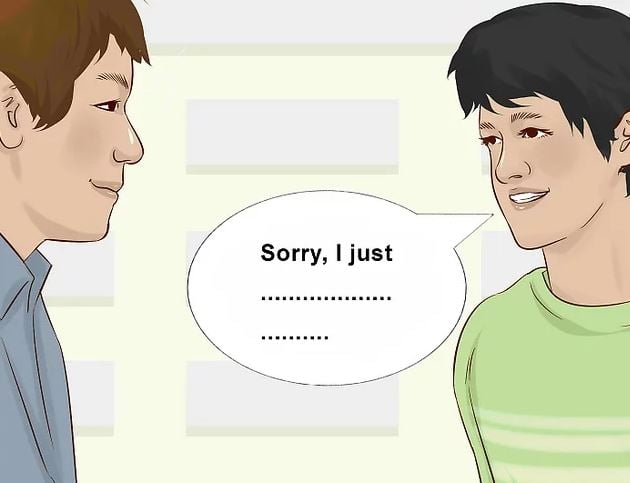
People suffering from codependency generally have low self-esteem and look for things outside of themselves for validation and fulfillment. They have difficulty “being themselves” and are prone to addictive or compulsive behavioural disorders. They generally have good intentions and try to take on the role of caregiver in many of their relationships, but often become self-defeating and compulsive in the role, enabling or shrugging off unacceptable behaviour.
This creates a cycle where the person needing care becomes ever-more dependent on their caregiver, while avoiding the consequences of their destructive behaviour. Meanwhile, the caregiver becomes habituated to the sense of satisfaction and fulfillment they derive from being needed. Eventually, the caretaking becomes a compulsion, and the caretaker develops a sense of martyrdom and victimhood, but is unable to break away from the mutually destructive relationship. This leads to feelings of helplessness and depression.
A Google search will yield a plethora of questionnaires designed to identify signs of the disorder, but please note that only a qualified professional is capable of making a diagnosis. The lists frequently include questions asking about your ability to communicate negative emotions, your tolerance towards living with toxic relationships, your self-esteem, and your ability to ask for, and deny requests for help. If you’re worried that you might be trapped in a cycle of co-dependence, we’d recommend trying this online questionnaire, and if the results indicate that you may be afflicted, seek out a mental health professional immediately.
Treating Codependency

If you’re convinced you suffer from this disorder, we’d recommend starting with a diagnosis, counseling, and peer-support fellowships. Al-Anon and Nar-Anon are both fantastic resources and support systems which will let you access the support and wisdom of those who have overcome codependence. SMART Recovery takes an approach to addiction based on the principles of Cognitive Behavioural Therapy, and their support program for family members emphasizes positive and honest communication for guiding addicted partners and family members toward healthier lives, and avoiding the pitfalls of codependence. Traditional therapy and CBT have also helped many codependent partners and family members to take control of their own lives and well-being.
Non-traditional cures can also be used to combat codependency. Mindfulness practice is a great way to connect with yourself and explore your own thoughts, needs, and desires. Yoga can also help center you and connect body, mind, and soul in a way that will help you actualize your own will to take control of your life. And treatment with psychedelics and ibogaine have also proved effective in helping patients confront traumatic aspects of their pasts, and deal with painful memories and emotions. Addiction can ruin the lives of addicts and their loved ones. Don’t let it ruin yours.
31st March 2020 • Sticky Post
Eating Disorder Treatment: How Can Iboga Help You?
Most discussions of eating disorders tend to focus on positive and negative body images, the fashion industry, and an obsession with weight loss. But the renowned physician Dr. Gabor Mate would argue that eating disorders fall into the realm of addiction. As he puts it; “I have never met an anorexic or bulimic who was not a traumatized person…a person who is desperately trying to exert some control over themselves.”
Are Eating Disorders an Addiction?
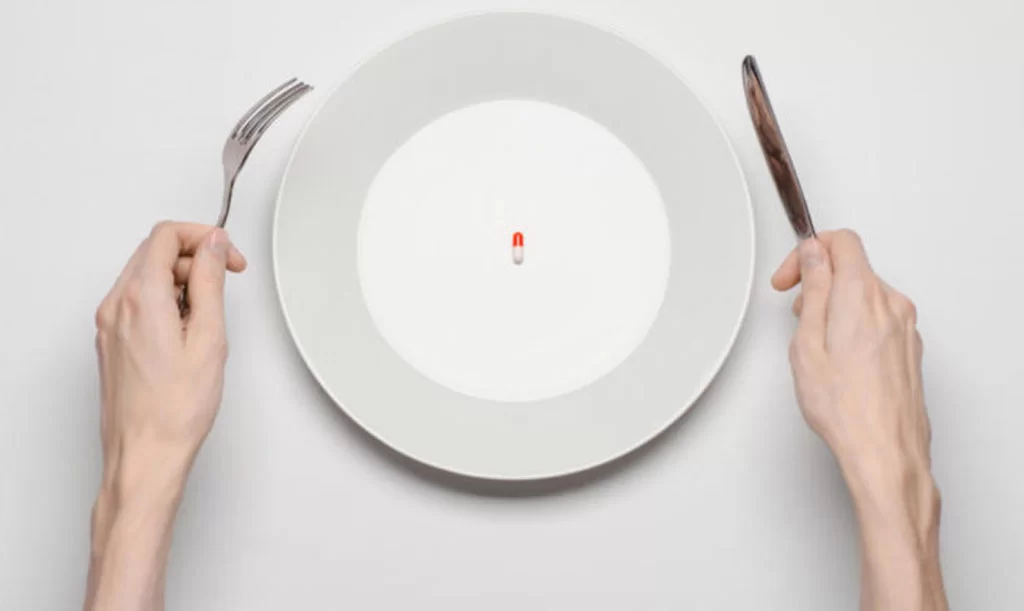
Dr. Mate’s fascinating philosophy of addiction posits that all addictions have their roots in early childhood experience, as our nervous and hormonal systems find ways to adapt to stress, wiring our brains’ developing systems of desire and reward in certain specific ways. Those with eating disorders are seeking either a sense of pleasure or an escape from inner pain through their relationship with food, in the same manner, and with the same mental processes and responses as a heroin addict seeks release through the drug. For more detail on Dr. Mate’s beliefs on emotional eating and addiction, we recommend this lecture.
If we accept that eating disorders are an addiction, we need to view their treatment through a different lens. The addicted brain has significant differences in its circuitry than a healthy brain. The systems which regulate the production of dopamine, a neurotransmitter that controls the body’s reward system, essentially stop producing pleasure except when triggered by the addictive substance. As our understanding of neurology has grown, we have learned that addiction hardwires certain behaviors into our minds. The addicted brain develops different responses to stress, anxiety, and substances of abuse than the healthy brain. The neurotransmitters and receptors which govern pain and pleasure take proteins from other neurons to create pathways that respond only to the presence or absence of a drug. Scientific studies have shown abnormalities in the neural processes of anorexics that aren’t dissimilar to addiction. And like addicts, those suffering from anorexia demonstrate an inability to alter their eating habits, even after expressing the desire to change.
American Addiction Centers uses the analogy of a hiking trail to explain the concepts of neural pathways and neuroplasticity: “ brains form neural pathways in a way that is similar to the formation of a well-traveled hiking trail. The more we travel a path, the faster, easier, and more familiar that path becomes. As we travel it more and more, it becomes wider, smoother, and easier to travel. It becomes a preferred route.” We can expand on this analogy in regard to the recovery process. As you learn to live a healthy life, you are essentially carving out a new path in a dense forest. The going will be slow, and the work will be hard, but each time your brain returns to this new trail, the journey will be smoother than the previous one. Every decision which supports your new lifestyle will be easier than the one before. Battling addiction is never easy, and it requires tremendous effort and strength, but promising alternative treatments can give you the push you need to start blazing a new trail!
How Iboga Can Help
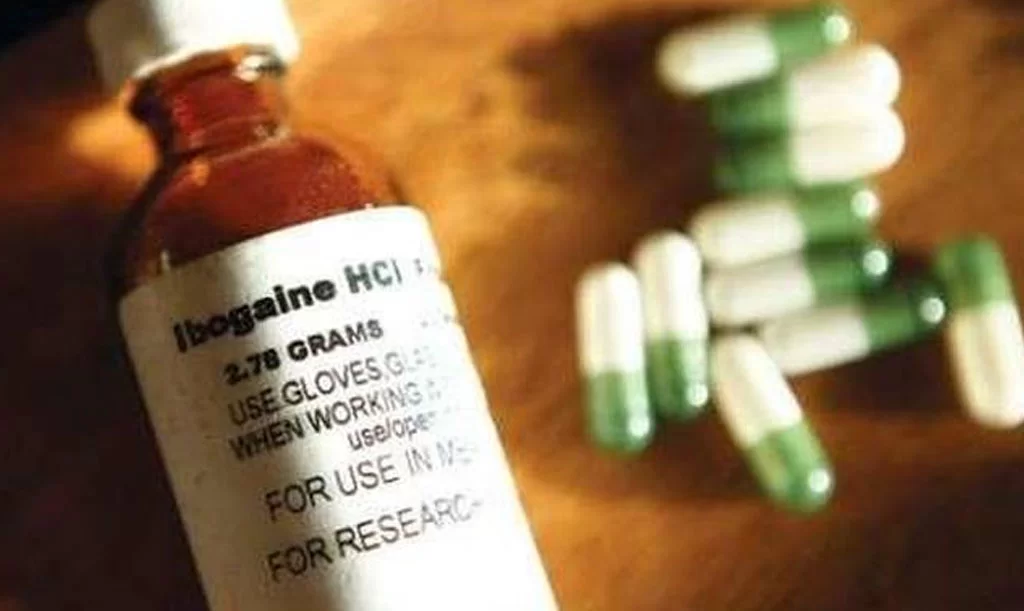
Iboga is a powerful, oneirogenic (meaning that it produces a waking dream state), plant-based medicine. It comes from the tabernanthe iboga plant which grows in West Africa and is an essential part of that region’s Bwiti spiritual traditions. Iboga has shown great promise in treating addiction and chemical dependence because of its ability to counter the withdrawal symptoms and cravings of heroin and opioid addiction with a single dose. But its benefits aren’t limited to those battling substance abuse.
Iboga has been proven to increase levels of GDNF, a protein that is produced by the brain in early childhood. GDNF is a fundamentally important protein for personal development because it rapidly increases the production of new neurons and allows for increased neuroplasticity. This is why childhood is the best time for people to learn new languages, figure out how to play musical instruments, and experiment with new habits and ideas. GDNF also helps to regulate responses to drugs of abuse and dopamine receptors in the brain and is extremely beneficial for creating and sustaining new habits and patterns of decision making and behavior.
For those suffering from eating disorders, GDNF has the potential to dramatically impact treatment outcomes. Its ability to create new ways of looking at the world, and neural pathways which respond to stress, pain, control, and pleasure in different ways can make all the difference in developing a healthy relationship with food, and escaping the cycle of emotional eating.
Next steps

Iboga isn’t a miracle cure for eating disorders or drug abuse, but the 3-6 month window following treatment offers you a window of time in which you will see the world differently, and gain the ability to develop healthy new habits. The way you think about life and analyze your environment will change perceptibly, and you’ll be receptive to changes and ideas that could literally save your life! At Iboga Tree Healing House, we’re committed to exploring the potential of ibogaine to reclaim lives devastated by eating disorders, and if you have any questions, we’d be more than happy to discuss them with you!
25th March 2020 • Sticky Post
Recovery and Spirituality: Understanding the links

“Spirituality” is a difficult concept to pin down, and one that many people have a strong response to. Some might instantly conjure up images of the Bible, the Star of David, or another organized religion. Others might immediately think of new-age touchstones like healing crystals or meditation. And most people have strong, instinctive positive and negative responses to religious concepts and images. But spirituality isn’t some vague riddle or standard set of rules and morals. Spirituality is something that is woven into the fabric of your everyday life, and learning to access it, explore it, and draw strength from it can be an invaluable resource as you go through the process of recovery
Understanding "Spirituality"

Many people are put off by the religious overtones of the concept of spirituality, but at Iboga Tree Healing House we feel that spirituality is the search for meaning, purpose, and a sense of connection to the world around you. For many people, it involves a search for connections with something greater than oneself, such as God, the universe, humanity, or nature. But it doesn’t have to be anything more specific than exploring the meaning of your experiences. There isn’t a right or wrong way to be spiritual, and for most people perspectives on spirituality evolve as they go through life, encounter new ideas, and develop new perspectives.
What Spirituality Isn’t

Many people who consider themselves Atheists or Agnostics and others who have painful or traumatic memories connected with religion are justifiably leery of being compelled to join in religious practices and ceremonies. But spirituality shouldn’t be tied to any particular God, moral code, or set of practices. While closely connected to religious belief, spirituality is personal and can remain private. The search for meaning and purpose can be undertaken through prayer, yoga, and tai chi. But it can also be accomplished in ways that don’t carry any religious baggage such as mindfulness practice, keeping a journal, or spending time in nature. You can define your own spiritual beliefs and the path which will keep your soul in tune with them.
Why Is Spirituality Important In Recovery?

One of the greatest benefits of spiritual practice is the connection you’ll rebuild with yourself. One of the first things people lose in addiction is their connection to their own personal sense of morality. Spirituality will allow you to re-discover your sense of right and wrong. Knowing your own beliefs and principles will allow you to develop your own, personalized guide to living a good life, and pursuing your goals in a positive and constructive fashion. One incredibly important pillar of the recovery process is re-learning how to be honest and truthful in your dealings with yourself and others, and spiritual practice is immeasurably helpful in this regard.
Another moral lesson that spiritual exploration often imparts is the importance of respecting yourself and others. Addiction has a corrosive effect on self-esteem and creates a deep sense of shame among the addicted. The overwhelming desire to get more of what you need also forces the addict to take advantage of others, ignore their needs and desires, and behave with monstrous selfishness. If you grew up an in abusive situation, the need to learn respect for yourself and others is even more acute. The good news is that embarking on a spiritual journey is almost guaranteed to build a sense of respect. As cultural anthropologists have noted: “Respect is essential to all the world's religions and is universally seen as a building block to a more human and humane world.”
Spirituality is also a wonderful tool for gaining perspective on your problems. An understanding of the inter-connectedness of people, nature, and the universe can help you realize that seeking understanding and support from those around you isn’t a sign of weakness or failure. Learning to admit the existence of problems and ask for help in dealing with them can make all the difference when you’re attempting to heal yourself and rebuild your life, and the sense of fellowship that can be developed with spiritual practice makes it much easier to share your burdens with the people around you. Spirituality makes it much easier to let go of your pride, admit that you are flawed, and receive support from your peers, friends, and family. Exploring your humanity allows you to see that we all share human weaknesses and that by working together we can turn that weakness into a strength.
Spirituality is also beneficial for giving recovering addicts a sense of purpose and meaning in their new lives. One of the most attractive elements of addiction is that it boils down all of life’s myriad problems into a single, simple dilemma: how can I get more of the substance I need? When you enter recovery, you might feel overwhelmed by all of the new challenges that appear. Getting your finances in order, sorting out relationships that have been strained to the breaking point, re-building your professional life, and dealing with legal issues are a few common issues that spring up. If you don’t find a sense of purpose and meaning as you confront these thorny problems, relapse will seem like a tempting way of escape.
Spiritual exploration will also push you towards building a meaningful life, allowing you to discover your unique talents, abilities, and gifts, and illuminating the ways you can make use of them for the benefit of yourself and others. Most spiritual paths will help seekers realize the importance of using their wisdom, struggles, and experiences to help others. For those in recovery, this is a beautiful way to help yourself and rebuild your shattered self-esteem by helping others. Watching others follow the 12 Steps or another path towards sobriety will reinforce the lessons you’ve learned, and fill your heart with hope, love, and renewed conviction.
Iboga Tree Healing House and Spirituality

At Iboga Tree Healing House, we feel that nurturing spirituality is an integral part of the recovery process. Iboga therapy is a fundamental part of the Bwiti spiritual traditions of Africa, and one of its effects in addition to interrupting addiction is building connections to what Douglas Adams called “Life, the Universe and Everything.” We also attempt to create a sense of spirituality in our clients by offering a wide range of holistic therapies, including yoga, mindfulness and meditation. If you’re looking for a treatment center that fosters spirituality as it helps patients to recover, don’t hesitate to get in touch!
4th March 2020 • Sticky Post
Treating Addiction: How Does NAD+ Help?
What Is NAD+?
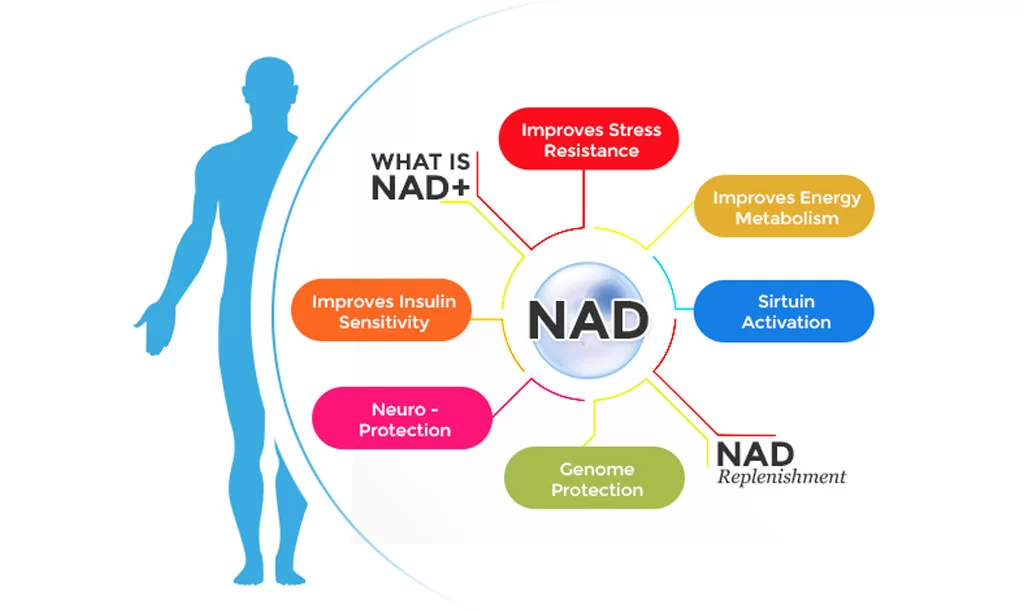
NAD+, or nicotinamide adenine dinucleotide, is scientifically defined as a naturally occurring co-enzyme of niacin. A close relative of vitamin B3, it aids in our bodies’ production of energy by converting energy obtained from food into cellular energy. The substance was discovered in 1906, and a recent study by Harvard researchers found that the NAD+ helped to reverse the effects of aging in mice. The body’s production and supply of NAD+ decreases with age, but Harvard professor of genetics David Sinclair, the study’s director, found that regular injections of NAD+ reversed the effects of vascular degeneration and muscle atrophy among the rodents studied. NAD+ essentially allows for the growth of new blood vessels, which keep muscles and other cells in the body from wasting away. It is also has been proven to increase neuroplasticity, the brain’s ability to repair itself.
The results of this study have led many anti-aging clinics to offer NAD+ therapy, which is also touted by providers for treating chronic fatigue syndrome, increasing focus and energy, aiding in detox from drugs and alcohol, increasing the metabolic rate, and improving cardiovascular health. While long term studies on the effects of NAD+ don’t yet exist, the medical establishment seems quite optimistic about its therapeutic uses.
How Does NAD+ Impact Addiction?
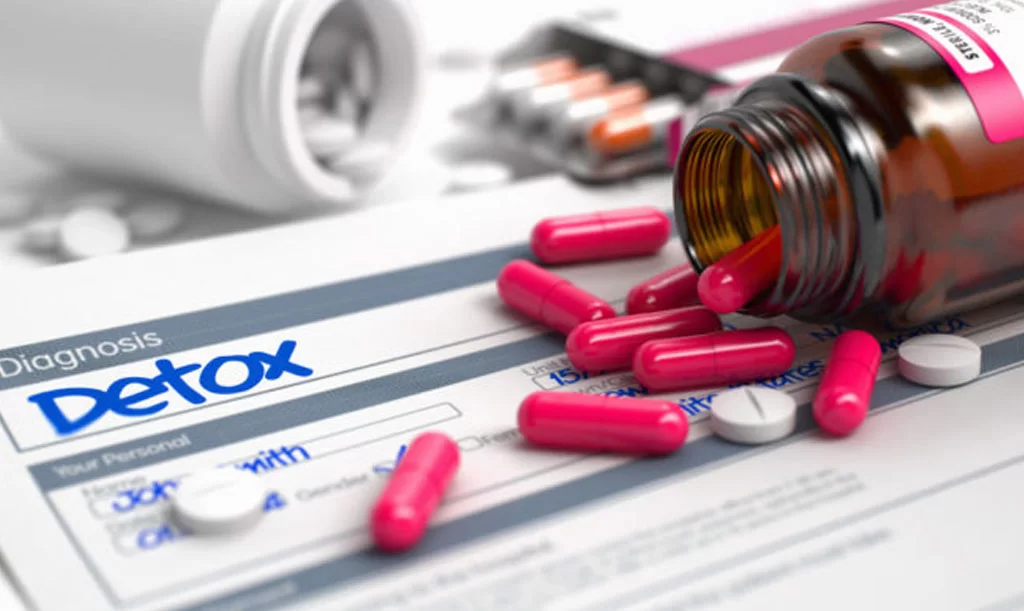
An interesting fact gleaned from research which has been conducted is that addicts typically have lower than average levels of NAD+ in their bodies. Some even speculate that lower than average levels of the substance might be one of the causes of dependence on alcohol and drugs. Some diseases that frequently co-occur with addiction also have the effect of depleting the body’s stores of NAD+, including post-traumatic stress, anxiety, and depression.
One provider of the therapy explains its use in detox and recovery like this: “NAD+ has a significant role in reducing the withdrawal effects by restoring the neurotransmitter balance, which shifts significantly after the drug that's been withdrawn has been removed. As a result, the patient experiences almost no withdrawal symptoms whilst and after completing the infusion cycle.”
Dr. Mark Collins, a British physician and psychologist specializing in addictions, is more measured in his assessment, stating “I have now witnessed its use in many patients, and I am very impressed with the short-term results, what is clearly needed is more research, and in particular longer-term outcome studies.”
Testimonials from addicts who have used NAD+ to aid in their recovery are positive. A recent Vice article by a reporter who experimented with NAD+ treatment to combat cravings for alcohol offered a generally positive review. The reporter also interviewed a crack addict who found that “I’d be lying if I said the thoughts [about picking up] aren't in my mind, and in my mind often, but that deep 'urge' that addicts will know about isn't there any longer.”
While most NAD+ treatments rely on intravenous injections, the substance can also be obtained through foods and nutritional supplements. Milk, fish, mushrooms, whole grains, peanuts, and garden vegetables are all rich in this nutrient. And Dr. Collins notes that “It's been known for decades that a high dose of vitamin B3—the 'poor man's' way of elevating NAD levels—has a beneficial effect for alcoholics, both in terms of detoxification and, perhaps more importantly, in reducing craving and anxiety levels after detoxification.”
In fact, Bill Wilson (better known as Bill W., co-founder of Alcoholics Anonymous) experimented with large doses of NAD+ in 1960. He began taking 3000 mg of niacin (a vitamin which naturally contains NAD+) and found that it reduced the fatigue and depression which had plagued him for years. Excited about this discovery, “Wilson gave the same doses to 30 of his close friends in AA, hoping it could be replicated. Of the 30, 20 he later reported became free of anxiety, tension, and depression in one or two months.” Wilson tried to share news of his discovery and wrote a pamphlet, but the treatment was deemed too controversial by AA’s board of directors and his campaign was suppressed.
Treatment Successes, But No Long-Term Studies
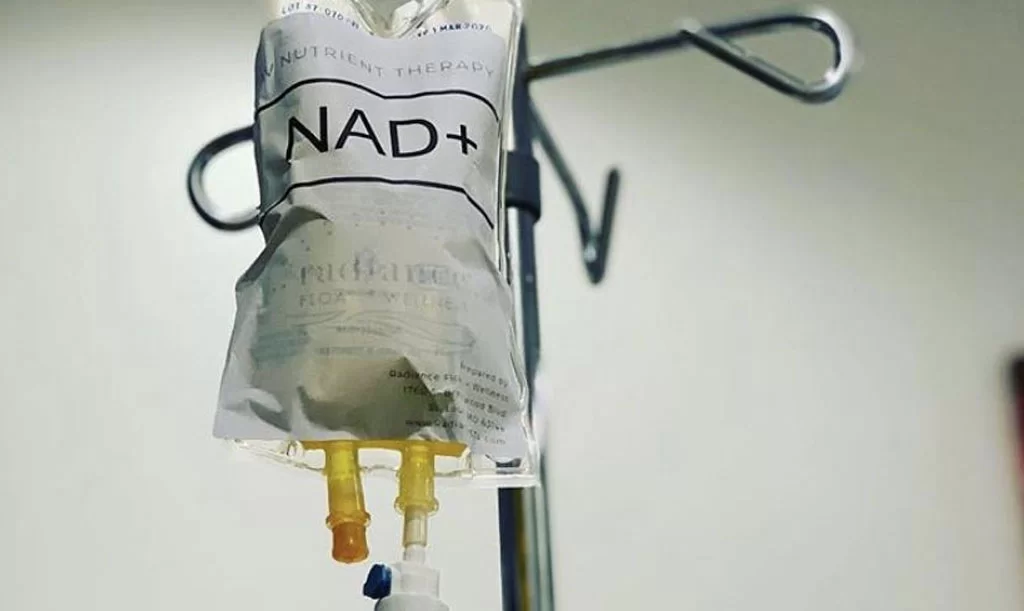
Flood doses of NAD+ have been used to treat addiction in South Africa since the 1960s, and the first clinic offering the treatment, the Springfield Wellness Center, founded by Psychotherapist Paula Mestayer and her Psychiatrist husband Richard, opened in America in 2001. They have since treated over 1000 patients, and Paula Mestayer says that the treatment “is not a cure, but rather maintenance,” and that many clients find it necessary to come back for booster doses. She also has found that the treatment is most effective when treating dependence on alcohol and opiates.
In spite of 70 years of evidence of the substantial benefits NAD+ therapy can offer addicts and those afflicted with a host of other ailments, there haven’t been long-term clinical studies on its efficacy and effects. It is reminiscent of ibogaine’s painstaking journey into the mainstream. While side-effects of NAD+ are usually limited to dizziness and perhaps a day or two of flu-like symptoms, we can’t be absolutely sure that NAD+ treatment is 100% safe in the long-term. But as the opioid epidemic rages on around the world and overdose tallies mount, investigating a promising treatment like NAD+ is indeed a sensible option.
At Iboga Tree Healing House, we feel that it’s the responsibility of governments and addictions professionals to explore every avenue that could possibly lead to the end of addiction. And as we come to understand the cognitive and neurological processes which create the addicted mind, treatments such as NAD+ and iboga seem ever more sensible and promising.


